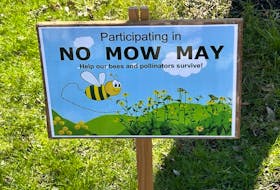It is something I have reported on before. However, I did not fully understand the number of people impacted. The CBC Marketplace did an investigation after hearing that 60,000 Canadians have been targeted with the CRA phone scam in last five years, and more than $10 million dollars has been stolen.
Many of us have received an automated call with the threat of arrest due to unpaid taxes. A call-back phone number is given. If that call is made there will be a series of threats...arrest, loss of employment, and seizure of assets. The way out of this problem is a quick payment of a reduced fine...anywhere from $700 to more than $100,000. The method of payment often tends to be the use of bitcoin, since this removes the possibility of the victim's bank becoming suspicious.
It seems the call centre for this operation is located in a very seedy section of Mumbai, India. CBC Marketplace travelled there and through careful investigation found the actual building. This is a well organized crime group who use young, English speaking individuals to make the calls. CBC reports they may even use call-trapping software to prevent the victim from hanging up and calling an accountant or their bank. The line simply stays open.
With this scam the victims are usually the elderly or new immigrants. One gentleman came from a country where threatening calls could be made by government officials. However, there are other scams that have the potential to target young, savvy people.
Banks are now moving to EMV chip-enabled cards to reduce the risk of credit card fraud. This process can take several months...so scammers tend to identify which bank is phasing in these credit cards and they then send out e-mails asking consumers to verify their information before the new card will be sent. You must not reply to this e-mail. Banks send out the cards automatically, and no action is required from the cardholder.
Then there is the call promising a reduction in interest rates on a credit card. This scam usually starts with an automated phone call...and may even sound like it is from your credit card company. This
might be a good time to add your phone number to the National Do Not Call Registry. This may not keep all scams at bay – but it should cut down the numbers.
You also might get a phone call indicating there has been suspicious activity on your account. The caller may identify themselves as being from your credit card company, then ask you to verify information to ensure your account is safe. They may even have some of your information...which they use to make you feel comfortable. This is where you should hang up and call the number on the back of your credit card. Some banks are now using the messaging system on cell-phones to report suspicious activity. However, you will be notified by your bank regarding this service.
There is one credit card scam that can catch people when they are groggy and half-asleep. You have checked into a hotel and in the middle of the night you get a call from someone claiming to be from the front desk. They indicate they are having trouble with the computer system and need your credit card information once more. If you do get a call like this, get dressed and go down to the front desk. Chances are very good they did not make that call.
If you do on-line banking it is a good idea to check the charges to your credit card every couple of days...but do not do the check while using free wifi. Scammers will often open a hotspot that does not need a password to join. If you use their wifi and log into your bank account they will have access to your banking information.
Scammers are greedy and they are cold-hearted. They can be very clever. The best defence is a healthy dose of suspicion...and a even bigger dose of vigilance.
Shirley Hallee is a freelance writer living in Amherst. Her column appears weekly in the Amherst News.

![['Perspectives with Shirley Hallee']](https://saltwire.imgix.net/hallee-2898924.jpg?cs=srgb&fit=crop&h=568&w=847&dpr=1&auto=enhance%2Cformat%2Ccompress)







